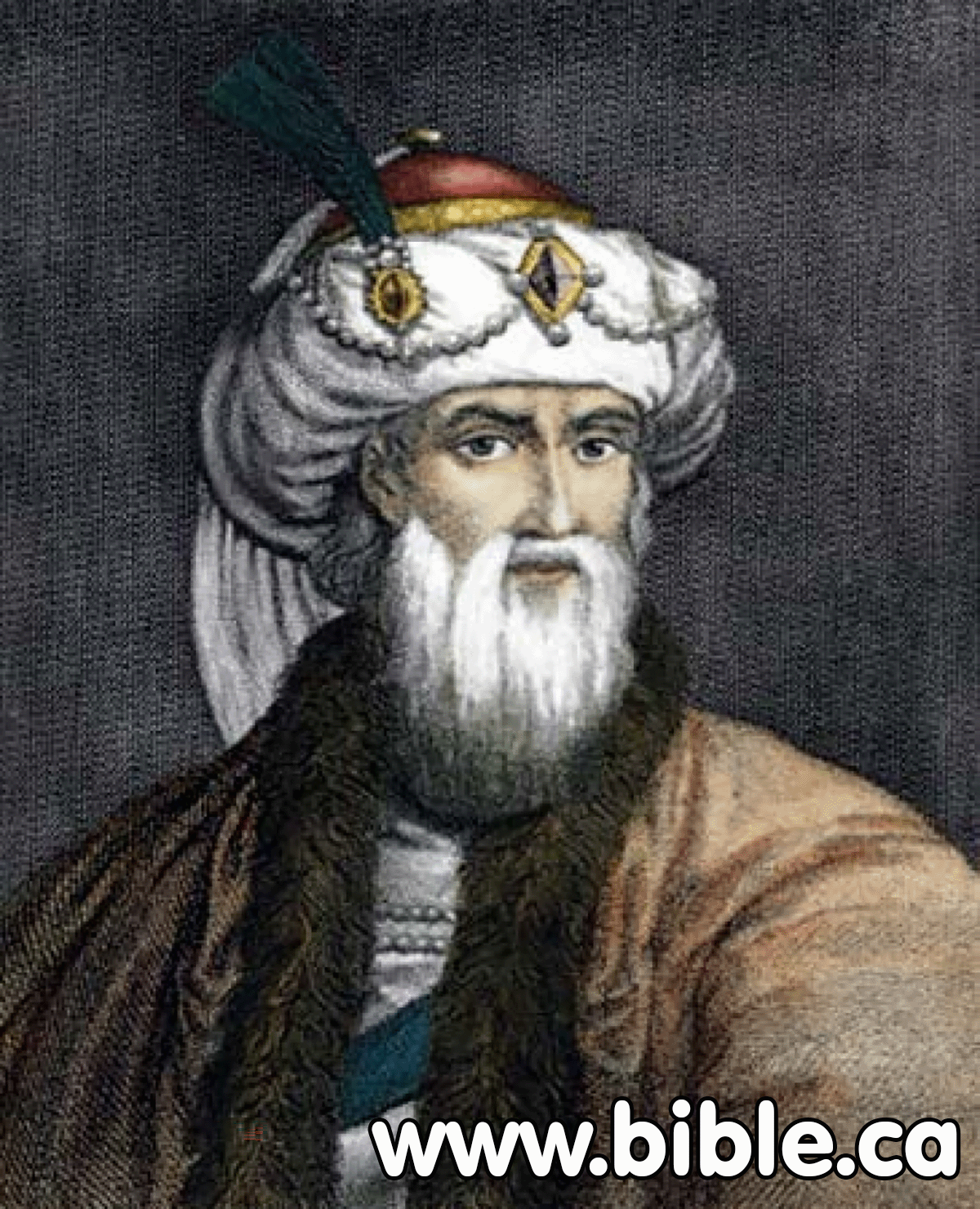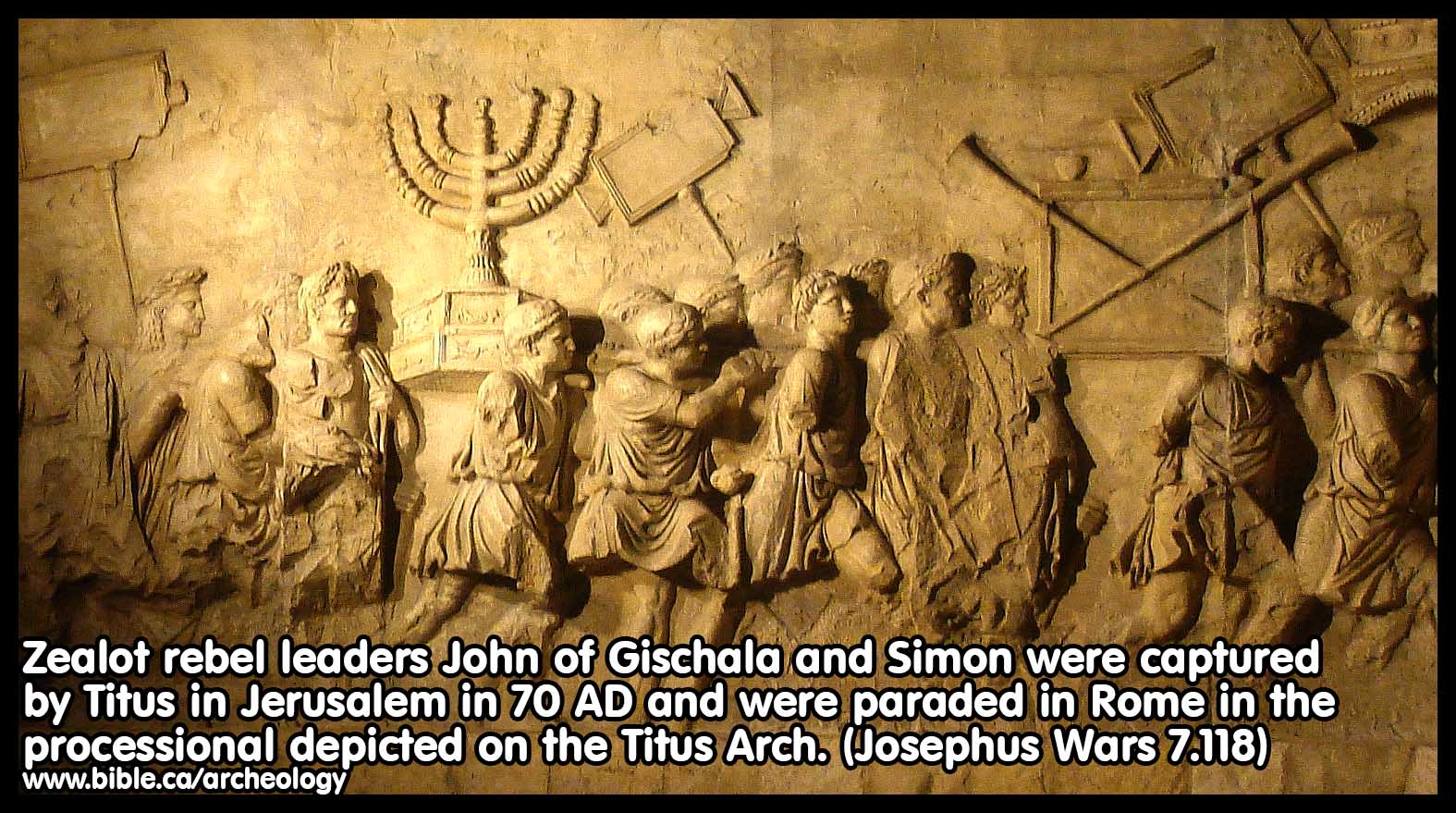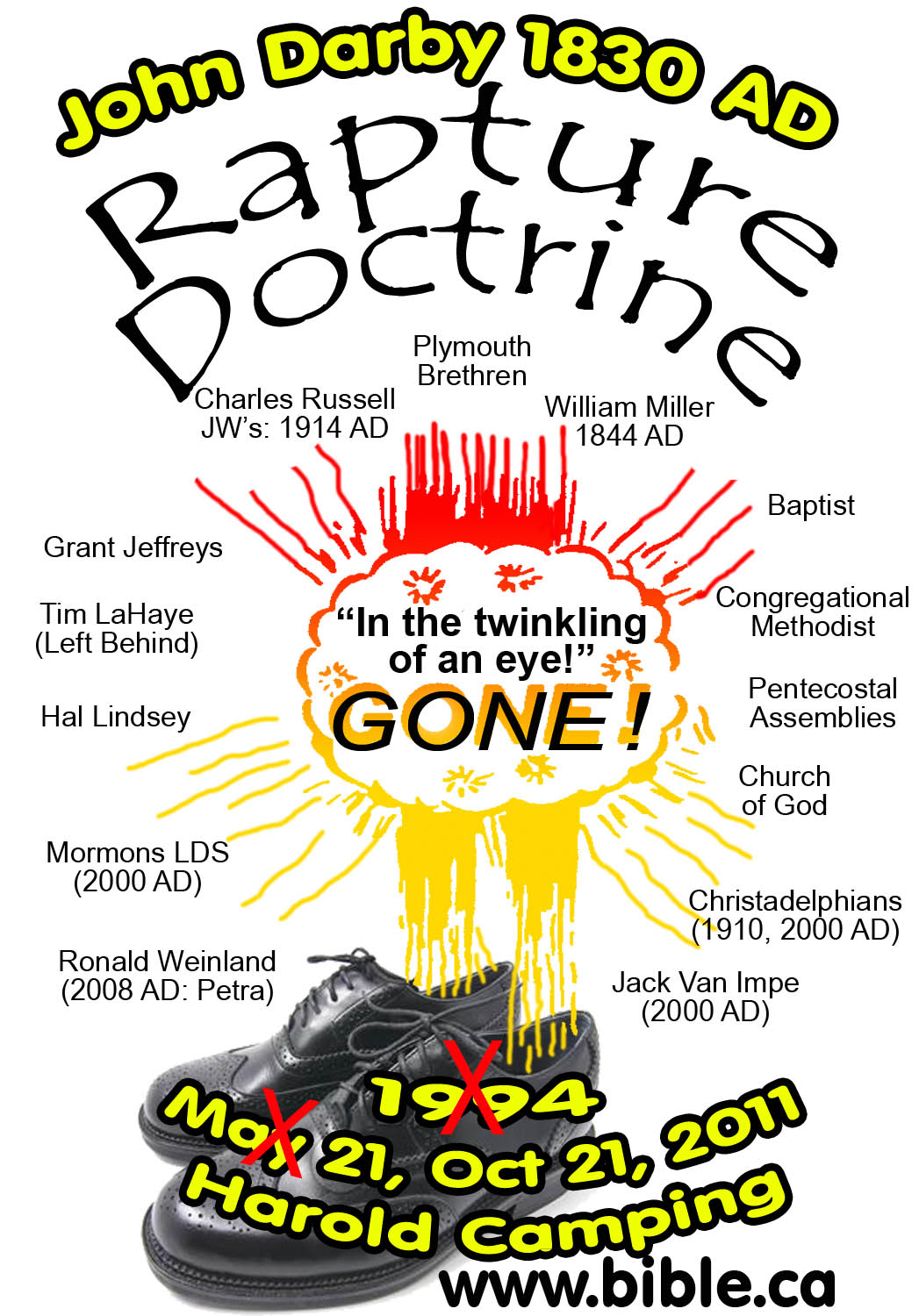Flavius Josephus describes the destruction of Jerusalem.
LINK: Detailed Chronology of first Jewish war as recorded by Josephus.
Detailed chronology of Josephus account of the First Jewish that fulfilled Jesusí prophecies of the destruction of Jerusalem.
Go to Rapture
Refuted home page

|
|
|
|
|
The Titus Arch in Rome that celebrates the destruction of the Temple in 70 AD by Titus as Matthew 24 prophesied. |
|
The signs of Matthew 24 prophecies the destruction of Jerusalem in 70AD not the second coming and certainly not some "Rapture" theology that was invented in 1830 AD by John Darby. When Christians saw the signs, they fled the city and were saved.
Go to Rapture Refuted home page |
|
|
|
|
Flavius Josephus describes the destruction of Jerusalem.
Introduction:
1. Josephus is one of the most famous historians of the Judeo-Christian Bible.
2. Writing in about 110 AD, Josephus recorded, in great detail, Jewish history, 1st century Judaism, the ministry of Jesus.
3. In a book called, "Wars of the Jews", Josephus describes the destruction of Jerusalem as Jesus prophesied in Matthew 24.
4. Initially most people who believe in the Rapture have such a poor knowledge of the bible, the first time they learn this historical fact, is when they read it here on our Rapture Refuted website! At first they suffer from denial. Then they are confused when they are unable to deny this historical record. Finally they invent the double prophecy argument, namely that Mt 24 prophesies 70 AD and the second coming. This of course is pure fantasy because none of the signs of Matthew 24 are of the second coming.
- "Herod and his successors could not wipe out all resistance to Hellenism among the Jews. There were, of course, varying degrees of resistance. Herod's supporters sought to bridge the gap between the two cultures and thus have the best of both worlds; the Sadducees combined a strict adherence to the Mosaic Law with at least a partial acceptance of Hellenism; the Pharisees were sterner opponents of foreign culture but more flexible in their attitude toward Judaism; the Essenes and other groups hoped for a messiah to deliver them from Roman domination and restore an independent Jewish nation. The Zealots had the most important influence on political events. They condemned anything foreign and insisted that force was the only weapon with which to combat it. At first only a minority, they grew powerful as Roman policy toward the Jews changed. The mad Caligula reversed the formerly tolerant Roman policy by attempting to install his own statue in the Temple, and only his timely murder saved the day. After Claudius' inauguration of the province in 44 AD, conditions worsened under a series of greedy and incompetent procurators, and in 66 AD revolt broke out (the First Jewish Revolt 66-77). (Encyclopedia Britannica 1979, Vol 17:950-951)
- The governor of Syria could not quell the uprising, and the emperor Nero entrusted the campaign to the veteran commander Vespasian. With superior forces Vespasian slowly and effectively subdued Galilee and Judaea. When he was recalled to Rome to become emperor himself, he gave his army to his son Titus. In 70 Titus captured and completely destroyed Jerusalem with great slaughter. In 73 the last flames of revolt were put out at Masada, where the last rebels committed suicide rather than fall into Roman hands." (Encyclopedia Britannica 1979, Vol 17:950-951)
7.
Of course, there is lot
of archeology that prove Matthew 24 was fulfilled in 70 AD, like the Titus
Arch, which is a Roman celebration monument in Rome of Titus carrying the
contents of the Temple in Jerusalem back Rome.

LINK: Detailed Chronology of first Jewish war as recorded by Josephus.
Detailed chronology of Josephus account of the First Jewish that fulfilled Jesusí prophecies of the destruction of Jerusalem.
Steven Rudd

